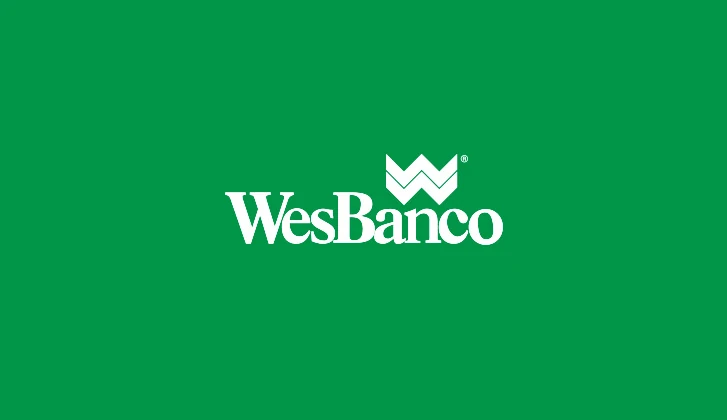NOTICE: Internet Explorer was retired by Microsoft on June 15th, 2022 and is no longer supported. This could change how you access Online Banking.
Our banking centers close at 12pm on 12/24 through Christmas Day. Transactions scheduled at that time will be processed the next business day.
Savings Accounts: What is a Savings Account?

4 Savings Accounts to Grow Your Money
Maybe you’re working to build an emergency fund, save for a big purchase or get money together to invest, and opening an insured savings account can put you on the right path.
Most banks and credit unions offer a variety of savings accounts to help grow your money and reach your savings goals.
What is a Savings Account and How Does it Work?
A savings account is a bank account that offers secure storage of your money with a financial institution. And that financial institution then pays interest, or a percentage of your balance, on the money in your account.
This means that your money is constantly growing. How much you earn depends on the interest rate the bank pays—which varies by account type. Interest rates are set by the bank and based upon what other banks pay for similar accounts.
Savings Account Calculator
Use this savings account calculator and adjust the inputs to see how much your monthly savings contributions will grow with interest.
Types of Savings Accounts
Just like your goals, savings accounts come in all shapes and sizes:
Looking to earn more interest beyond the basics? Check out these types of saving options, too:
If you’re not sure which account is best for your saving ambitions, compare different types of savings accounts or contact a WesBanco expert and learn about our personalized approach to saving.
Everyday Savings Accounts
Our most basic savings accounts, or statement savings, are great everyday accounts that allow you to deposit and withdraw money at any time. Our statement savings account also offers a low minimum balance and easy access to your funds, which is ideal for emergencies, upcoming travel or holiday gifts. This account is also available to minors and can be used to teach young savers the benefits of growing money with interest.
Earning interest with Statement Savings takes time, but it still counts.
An everyday savings account probably won’t yield earnings overnight, but you’ll certainly earn more interest in a statement savings account than if your money was in a checking account or no account at all.
You earn interest with a statement savings account on your entire collected balance and any maintenance fees are waived on balances $300 and above. All fees are waived for minors who open an account to learn the importance of saving.
Companion Savings Accounts
If you’re already a WesBanco checking account holder, consider pairing it with a Companion Savings Account. Companion Savings allows you to easily transfer funds from your checking account directly into savings. And once you set up automatic transfers saving becomes a breeze.
These kinds of savings accounts are perfect for students or anyone looking to learn more about saving and earning interest. Equipped with a low initial deposit and limit, you’ll earn interest monthly. Keep your Companion Savings linked to your WesBanco checking account and get your minimum balance requirement and fee waived.
Money Market Accounts
Most banks, including WesBanco offer hybrid accounts—part checking, part saving—called money market accounts (MMAs) or sometimes money market deposit accounts. They’re similar to money market mutual funds but have the advantage of FDIC insurance.
MMAs typically pay higher interest rates than regular savings accounts, and may offer blended or tiered rates, which means you can earn interest at an even higher rate on large balances or on part of your balance over a certain level.
The catch is that the minimum required deposit is often higher than a regular savings account. If your account falls below that mark, you may face substantial service fees, forfeit your interest or both.
Money Market Account Calculator
Adjust the inputs to see how much your savings in a money market account grow over time.
Premium Savings Options
Certificates of deposit (CDs)—sometimes called share certificates at credit unions—are high-end savings accounts. They generally pay interest at a higher rate than other bank or credit union accounts, but you have limited access to your funds over time, which means they should be used as a long-term savings option.
What makes CDs different from regular savings accounts is that they’re time deposits. That means that when you open a CD you agree to commit your money for a specific term, or period of time. You also agree that if you withdraw money from the CD before it matures when the term ends, you’ll forfeit some or all of the interest you would have earned.
Typical terms include six months, a year, two and a half years, and five years. But the term may be any period you and the bank agree on. The longer the term, the higher the interest you may earn. Sometimes there’s a minimum deposit—often $500—and some banks may pay slightly higher rates for large deposits.
When a CD matures, you can roll over the money into another CD, transfer your money to a different account, or have the bank or credit union send you a check. But you must tell the financial institution what you want it to do with your funds by the term deadline on your account. If you don’t take any action once the term is up, your money is typically reinvested into another CD with the same terms at the current rate.
Understanding Interest: Simple vs. Compound
When it comes to interest rates and savings accounts, it’s important to understand the difference between the named rate and the annual percentage yield (APY). The interest, or named rate, is the rate they pay to you. The APY is what you earn over the course of a year, expressed as a percentage of your principal or the total amount in your savings account.
The amount of money you actually earn depends on whether the account pays simple or compound interest. Simple interest is calculated annually on the amount you deposit. With compound interest, the interest is added to your principal to form a new base on which you earn the next round of interest. Compound interest can be paid daily, monthly or quarterly, depending on the account and your bank.
How can you tell whether interest is simple or compound? If the interest rate and the APY are the same, you’re earning simple interest. If the APY is higher, the interest is compound.
Customizing a CD
If you have bills that come due at specific times each month, like a tuition payment, your bank may agree to let you open one or more CDs with a special term that will mature when you need your money, even if it’s not the conventional six or twelve-month period. They may even offer a slightly better rate than a shorter CD. That way, you’ll not only have the money when you need it, but it will be easier to resist the temptation to spend it on something else.
How to Open a Savings Account
Once you’ve compared your options and determined which account is best for reaching your goals, you’ll be ready to open a savings account. If you’re still not sure which account to choose, contact a WesBanco expert who can help you make the right decision for your saving journey.
Content is for informational purposes only and is not intended to provide legal or financial advice. The views and opinions expressed do not necessarily represent the views and opinions of WesBanco.
While we hope you find this content useful, it is only intended to serve as a starting point. Your next step is to speak with a qualified, licensed professional who can provide advice tailored to your individual circumstances. Nothing in this article, nor in any associated resources, should be construed as financial or legal advice. Furthermore, while we have made good faith efforts to ensure that the information presented was correct as of the date the content was prepared, we are unable to guarantee that it remains accurate today.
Neither Banzai nor its sponsoring partners make any warranties or representations as to the accuracy, applicability, completeness, or suitability for any particular purpose of the information contained herein. Banzai and its sponsoring partners expressly disclaim any liability arising from the use or misuse of these materials and, by visiting this site, you agree to release Banzai and its sponsoring partners from any such liability. Do not rely upon the information provided in this content when making decisions regarding financial or legal matters without first consulting with a qualified, licensed professional.
Find a Location Near You!
WesBanco operates branches and offices in 8 states. Over the past decade, we have built a national reputation as a safe, sound and profitable bank holding company that always strives to do better by its customers.
Locations




